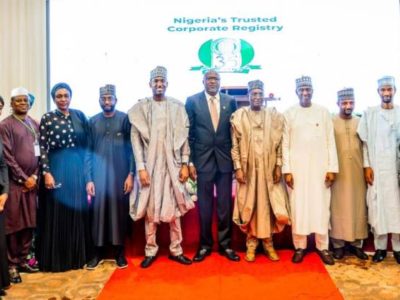Nigeria Poised for Landmark Digital Economy Law as National Assembly Concludes Public Hearing
Nigeria is set to become the first African country to enact a comprehensive law on digital economy and e-governance, with the National Digital Economy and E-Governance Bill 2025 expected to receive President Bola Tinubu’s assent before the end of the month.
RELATED: Ministry of Communications advances nationwide consultations on digital economy and e-Governance bill in Lagos
The assurance was given by the Minister of Communications, Innovation and Digital Economy, Dr. Bosun Tijani, during a one-day public hearing jointly organised by the Senate and House Committees on ICT, Cybersecurity, Digital, and Information Technology at the National Assembly, Abuja.
A Transformational Law Targeting a $1 Trillion Economy
Tijani described the bill as a major economic catalyst, projecting that the digital economy will contribute 21% to Nigeria’s GDP by 2027.
According to him, the legislation—awaited by the President—will drive the administration’s ambition to build a $1 trillion economy, strengthen competitiveness, and modernise public service delivery.
He emphasised that the Tinubu administration is pursuing deep structural reforms, not “quick fixes,” aimed at transforming productivity and governance nationwide.
Bill Establishes Legal Framework for E-Governance, AI, Cybersecurity & Digital Transactions
The proposed law provides a sweeping regulatory foundation for:
- Electronic communications and digital signatures
- Cybersecurity and compliance requirements
- Artificial Intelligence (AI) governance and ethical deployment
- Digital literacy and nationwide capacity development
It also establishes a National Data Exchange System to ensure seamless data sharing across MDAs and between government and the private sector.
Tijani noted that the bill would “shape the future of generations yet unborn,” emphasising its significance alongside the landmark telecom sector liberalisation of 1999.
Massive Digital Infrastructure Rollout to Boost Connectivity
The Minister revealed that government is progressing with plans to deploy:
- 90,000km of fibre-optic cable nationwide
- 4,000 new communication towers to connect underserved communities and over 20 million unconnected Nigerians
This infrastructure expansion is designed to accelerate inclusion and enable reliable, high-speed digital services across all regions.
National Assembly Leaders Endorse the Bill
Senator Shuaib Afolabi Salisu, Chairman of the Senate Committee on ICT and Cybersecurity, hailed the bill as a milestone in Nigeria’s digital governance journey and a backbone for the country’s electronic transaction ecosystem.
Hon. Adedeji Olajide, Chairman of the House Committee on ICT, said the bill would “transform the public sector through digital innovation, transparency, and accountability.”
Stakeholders from NCC, NIGCOMSAT, NIPOST, Galaxy Backbone, and the Office of the Head of Service of the Federation (OHCSF) unanimously backed the bill.
The OHCSF, however, recommended adjustments to align provisions with existing public service regulations and prevent mandate overlaps with agencies such as the Federal Civil Service Commission and the Bureau of Public Procurement.
Lawmakers pledged to incorporate all credible inputs before passing the final version for third reading.
Private Sector and Academia Applaud Emphasis on AI & Cybersecurity
Representatives from industry and academia praised the bill’s focus on AI regulation, cybersecurity governance, and digital literacy. They noted its potential to cement Nigeria’s leadership in Africa’s digital future.
With strong legislative support and executive commitment, the National Digital Economy and E-Governance Bill 2025 is expected to become one of Nigeria’s most consequential digital-era reforms. It will be laying the legal foundation for transparent governance, innovation-driven growth, and sustainable competitiveness.
Key Features of the National Digital Economy and E-Governance Bill
1. Mandatory Digitisation of Government Operations
All MDAs must digitise services, records, and processes, and establish ICT units supervised by NITDA.
2. Legal Recognition for Electronic Transactions
The bill validates electronic signatures, contracts, and records, enabling seamless digital interactions with government and businesses.
3. Strengthened Regulatory Framework
NITDA is affirmed as central regulator for digital economy activities, AI governance, cybersecurity standards, and data exchange systems.
4. Digital Infrastructure Development
Supports expansion of 90,000km fibre network and 4,000 communication towers to deepen nationwide connectivity.
5. Consumer Protection in E-Commerce
Requires clear vendor disclosures, strengthens data security, and enhances online consumer rights.
6. National Economic Transformation Goal
Anchors Nigeria’s plan to build a $1 trillion economy through digital innovation, productivity, and youth participation.






























